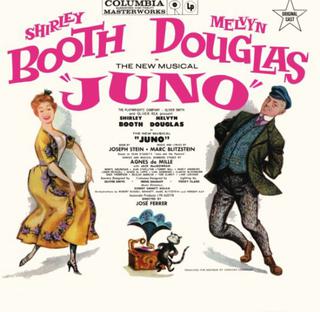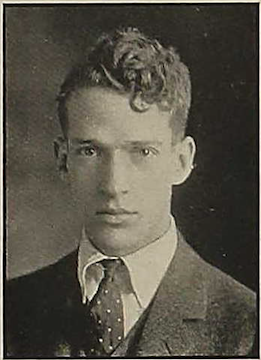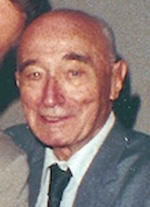Related Research Articles
Brigadoon is a musical with a book and lyrics by Alan Jay Lerner, and music by Frederick Loewe. The song "Almost Like Being in Love", from the musical, has become a standard. It features two American tourists who stumble upon Brigadoon, a mysterious Scottish village that appears for only one day every 100 years. Tommy, one of the tourists, falls in love with Fiona, a young woman from Brigadoon.

Guys and Dolls is a musical with music and lyrics by Frank Loesser and book by Jo Swerling and Abe Burrows. It is based on "The Idyll of Miss Sarah Brown" (1933) and "Blood Pressure", which are two short stories by Damon Runyon, and also borrows characters and plot elements from other Runyon stories, such as "Pick the Winner". The show premiered on Broadway in 1950, where it ran for 1,200 performances and won the Tony Award for Best Musical. The musical has had several Broadway and London revivals, as well as a 1955 film adaptation starring Frank Sinatra, Marlon Brando, Jean Simmons, and Vivian Blaine.

Robert Russell Bennett was an American composer and arranger, best known for his orchestration of many well-known Broadway and Hollywood musicals by other composers such as Irving Berlin, George Gershwin, Jerome Kern, Cole Porter, and Richard Rodgers.

Juno is a musical with music and lyrics by Marc Blitzstein and book by Joseph Stein, based closely on the 1924 play Juno and the Paycock by Seán O'Casey. The story centers on the disintegration of an Irish family in Dublin in the early 1920s, during the Irish War of Independence. Juno is a hardworking matriarch who strives to hold her family together in the face of war, betrayal, and her worthless husband's drinking.

Conrad Salinger was an American arranger, orchestrator and composer, who studied classical composition at the Paris Conservatoire. He is credited with orchestrating nine productions on Broadway from 1931 to 1938, and over seventy-five motion pictures from 1931 to 1962. Film scholar Clive Hirschhorn considers him the finest orchestrator ever to work in the movies. Early in his career, film composer John Williams spent much time around Salinger.
Edward Ernest Sauter was an American composer and arranger during the swing era.
Irwin Kostal was an American musical arranger of films and an orchestrator of Broadway musicals.
Stuart Ostrow is an American theatrical producer and director, professor, and author.

Don Walker was a prolific Broadway orchestrator, who also composed music for musicals and one film and worked as a conductor in television.
Charles L. Cooke, known as Doc Cook, was an American jazz bandleader and arranger. Cook was a Doctor of Music, awarded by the Chicago Musical College in 1926.
John Alexander McGlinn III was an American conductor and musical theatre archivist. He was a leading advocate of the use of original orchestrations and vocal arrangements in studio cast recordings of Broadway musicals, and he made several notable albums exemplifying his philosophy of historical authenticity.
Philip J. Lang was an American musical arranger, orchestrator and composer of band music, as well as a musical educator. He is credited for writing the orchestral arrangements (orchestrations) for over 50 Broadway theatre shows, including many landmark productions, such as Li'l Abner (1956), Hello, Dolly! (1964), Mame (1966), George M (1968), Annie (1977) and 42nd Street (1980). Together with Robert Russell Bennett, he orchestrated the record-breaking productions of Lerner and Loewe's My Fair Lady (1956) and Camelot (1960). Russell Bennett, the dean of musical orchestrators, remarked that the original arrangements Lang had prepared for Annie Get Your Gun (1946), which utilized a modern technique of orchestral scoring, were beautifully done.
Robert "Red" Ginzler was an American orchestrator, principally remembered for his contributions to the landmark Broadway shows Gypsy, Bye Bye Birdie and How to Succeed in Business Without Really Trying. A frequent collaborator with fellow arrangers Sid Ramin and Don Walker, he was also billed as Seymour Robert Ginzler until his heyday in the late 1950s.
Gertrud Rittmann was a German Jewish composer, musical director, arranger and orchestrator who lived and worked for much of her life in the United States. Her career particularly flourished with major successes in Broadway theater.
Douglas Besterman is an American orchestrator, musical arranger and music producer. He is the recipient of three Tony Awards out of six total nominations and two Drama Desk Awards out of six total nominations, and was a 2009 Grammy Award nominee.

Hans Spialek was an Austrian-born American composer and orchestrator. Raised in Vienna and given an early musical education, he continued his studies in Moscow, at first as a prisoner of war during World War I, before settling in the US in 1924.
Larry Blank is an American composer, arranger, orchestrator and conductor. He has worked in film, theatre and television, and has been nominated for a Tony Award three times.
Max Dreyfus was a German-born American music publisher, arranger and songwriter. Between the 1910s and 1950s he encouraged and published the work of many of the writers of the so-called Great American Songbook, and was president of Chappell & Co., Inc. American office, the world's largest music publishing firm.
Steven Suskin is an American theater critic and historian of musical theater. He is a member emeritus of the New York Drama Critics' Circle.

The original cast recording of The King and I was issued in 1951 on Decca Records, with Gertrude Lawrence, Yul Brynner, Dorothy Sarnoff and Doretta Morrow. The Broadway cast recording was directed by John Van Druten, with orchestrations by Robert Russell Bennett and musical director Frederick Dvonch. The recording was inducted into the Grammy Hall of Fame in 2001.
References
- ↑ Bio entry in The Oxford Companion to American Theater, 2004.
- ↑ Robert Russell Bennett (ed. George Joseph Ferencz), The Broadway Sound, University of Rochester Press, 1998, p. 181.
- ↑ "Business Records, Bankruptcy Proceedings", The New York Times, 11 November 1937, p. 46.
- ↑ "The Boys That Make the Noise", Music section, Time , 5 July 1943.
- ↑ Steven Suskin, The Sound of Broadway Music, Oxford University Press, New York, 2009, p. 81
- ↑ Internet Broadway Data Base
- ↑ Suskin, p. 83.
- ↑ Internet Movie Data Base
- ↑ Ted Royal Scores, Correspondence and Biographical Note, donated 1993 to the New York Public Library.